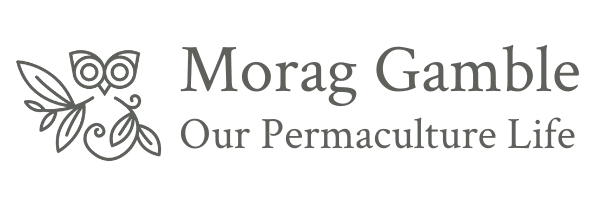Today I share with you 4 ways to look after your skin using simple, natural, unpackaged products from your garden and kitchen. Not only is this a great way to reduce plastics and look after your skin naturally, it’s also an easy way to save money. You can easily spend $30 on a beauty product – use your savings to donate it to children in refugee camps who, with their families, are learning about permaculture & growing tiny edible gardens around their homes to keep hunger at bay.
To support me in my vision to share permaculture education with global refugees, support my Permaculture charity, Ethos Foundation, with a donation today! Every dollar goes directly to the communities in need.
In July, I film a short 2-3min live video each day from my garden or inside my house. During these lives, I talked about a number of simple ways that we can actually get rid of some of the single-use plastics that enter into our daily lives. This video is a from Day 16 and it focusses on the ways we can reduce plastic through our face care.
To learn more about growing a permaculture garden simply and easily, check out our course The Incredible Edible Garden and learn how to design your own permaculture landscape in our Permaculture Design Course.

Natural methods to help with acne spots
My quick fix involves just using a lemon from the garden, or in the case of this video – a ripe Tahitian lime (basically, anything citrus). Just use a cotton bud (rather than a plastic cotton bud, use a reusable one) or a bit of cotton wool and take a little bit of the pulp from a freshly cut lemon or lime and apply it to the spots. Alternatively, you can use the tip of your finger or slice the lemon and apply the pulp directly to the spots. This should help with scarring and reduce redness.
If you’re looking for something that is more nourishing for older skin like mine, then you can actually take a bit of honey and put it on your face. Leave it there for ten minutes or so and then wash it off – it’s really nourishing. I’ve also talked before about aloe vera, which also works well and is something that many people have growing in their garden. But if you source raw honey locally, it helps to support local produce and is just as effective as aloe.
Natural scrubs and exfoliants
If you’re looking for a scrub or something to help with a bit of exfoliation, then you can’t go past oats. You can either just use them straight or you can grind them up a bit. If you have a coffee grinder or food processor then you can use this to make oats into more of a paste by mixing them with a bit of water. You can then use this mix, to clean your face. It feels so nice and it also helps to moisturize and restore vitamin E oil (which is naturally occurring in oats).
Another natural scrub that you can use, is coffee grounds. If you drink coffee maker and make it yourself at home, then you’ll probably have access to an abundance of coffee grounds. Surprisingly, these make an excellent exfoliator for not only your face but your whole body too. You can combine the grounds with a small amount of coconut oil to help moisturise your body too. If you don’t have access to these from your own coffee making, then you can try collecting some from a local cafe. So, for example, in the shower you can use this scrub and know that it is safe to be washed down the drain because it won’t contain microplastics or microbeads.
Great for your wallet and the environment
Not only are these natural fixes good for the environment and your skin, but they also help you save quite a bit of money. Even those little bottles and packets you see in stores often cost upwards of $30, which is money you don’t need to be spending on something you can make from home in 5 minutes.
This also gives you the opportunity to spend your money on causes that benefit the environment and society, rather than having your money go to large corporations. You could easily save yourself thirty dollars with every little tub you don’t buy, and then give $3.00 to a charity like Ethos Foundation, for example. We offer free garden kits to refugee kids in camps around Uganda and Kenya. We have new kids wanting to join all the time, but can only support so many at a time.
Every thirty dollars that are donated, gives one kid a set of tools and some seeds and a watering can. Plus, it also offers them an education so that they can actually go and create edible gardens in and around their homes in these camps. This sort of work is absolutely essential particularly now because the coronavirus has massively reduced their ability to access food.
How is your plastic-free journey going?
I’d love to hear about the things that you’re doing and the different ways that you’ve been able to make little shifts. Tell me all the innovative ideas that you’ve come up with so that they can be shared with other people. Please share it down below!

